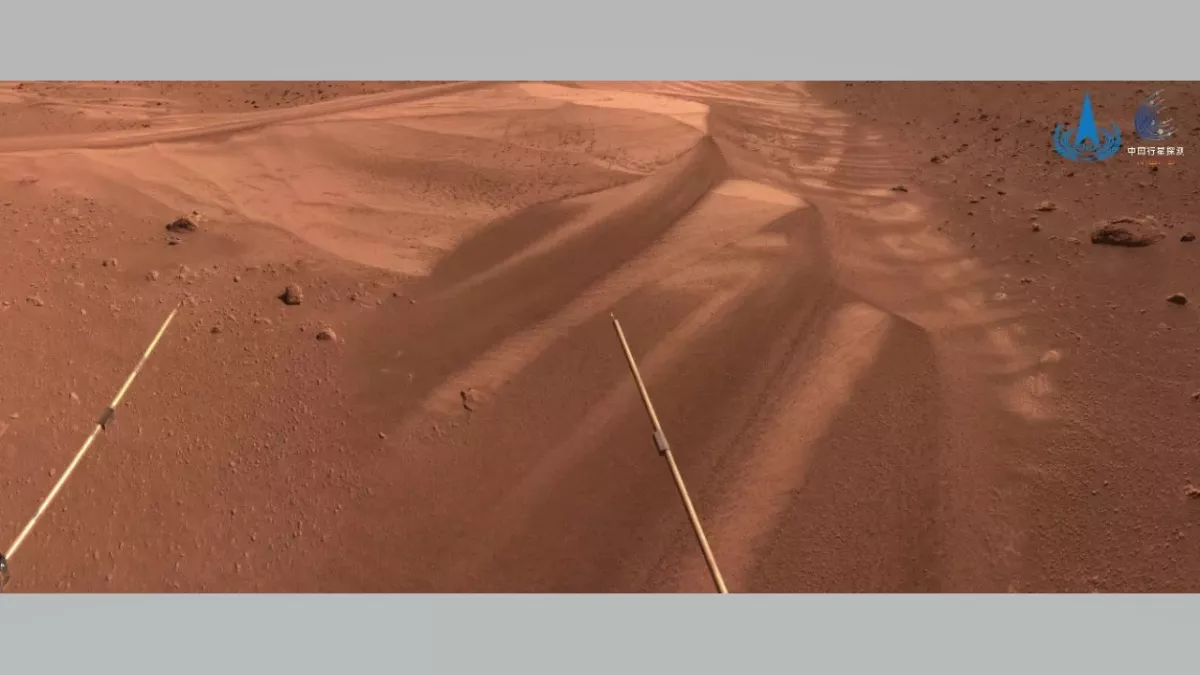Scientists answer the question of what is the speed of sound on Mars
- January 31, 2024
- 0
According to Einstein’s theory of special relativity, the speed of light in vacuum is the same everywhere you measure it in the universe. Wherever you are – on
According to Einstein’s theory of special relativity, the speed of light in vacuum is the same everywhere you measure it in the universe. Wherever you are – on

According to Einstein’s theory of special relativity, the speed of light in vacuum is the same everywhere you measure it in the universe. Wherever you are – on Earth, Mars or a Star, if you measure the speed of light, you will find that it is traveling at 299,792,458 meters per second (983,571,056.43 feet per second); this is the absolute limit speed of the universe. .
Sound is not the same as light. As explained in the poster of the movie “Alien”, no one will be able to hear you scream in space. Or, to put it another way, sound cannot travel in a vacuum because it is a vibration that travels as an acoustic wave through a medium, whether it is liquid, solid, or solid. gas.
While sound travels at different speeds through these media, denser media travel faster. On Earth, sound travels at a speed of 1,500 meters (5,000 feet) per second in water and approximately 340 meters (1,115 feet) per second in air. Sound travels much faster in solids, but how fast depends on the solid. Scientists trying to calculate the maximum speed of sound found that the speed decreases with decreasing atomic mass; This means that sound will travel fastest if it travels through solid hydrogen. Although solid hydrogen exists only at extremely high pressures, as in gas giants like Jupiter, they calculated that sound would likely travel at 36 kilometers per second (22 miles per second), the fastest speed at which sound can travel.
This brings us to the answer to the question posed in the title of this article. Earth’s atmosphere is much denser than Mars’ atmosphere – about 100 times denser than red on our planet’s surface. Therefore, if the atmosphere is thick enough to carry sound over significant distances, sound would be expected to travel slower here than there.
Of course, we have audio recordings on Mars, including the voice of the Martian dust devil, thanks to the army of robots we sent there. So we know that sound goes there experimentally.
In fact, Mars is one of only two planets where we can actually measure the speed of sound. In a 2022 experiment, NASA’s Perseverance rover fired a laser at rocks and waited for the shock wave to be picked up by its microphones. As on Earth, the speed of sound varies with temperature and altitude, but experiments conducted by the rover showed that the speed of sound in Jezero Crater averages 240 meters per second (540 miles per hour).
When day turns to night on Mars, the speed changes by about 10 percent due to the drop in temperature. The sound on Mars never ceases to be strange. As sound travels through carbon dioxide at low pressure, there is a change in the speed of sound in the audible range on Mars.
“For an acoustic wave above ~240 Hz (slightly below the midpoint of the piano), the CO2 vibrational modes activated by collisions do not have time to relax their energy,” the team explains in their paper. “It turns out that on Mars, frequencies above 240 Hz propagate more than 10 m/s faster than lower frequencies. This could create a unique listening experience on Mars, with high-frequency sounds starting earlier compared to the baseline.”
Source: Port Altele
As an experienced journalist and author, Mary has been reporting on the latest news and trends for over 5 years. With a passion for uncovering the stories behind the headlines, Mary has earned a reputation as a trusted voice in the world of journalism. Her writing style is insightful, engaging and thought-provoking, as she takes a deep dive into the most pressing issues of our time.